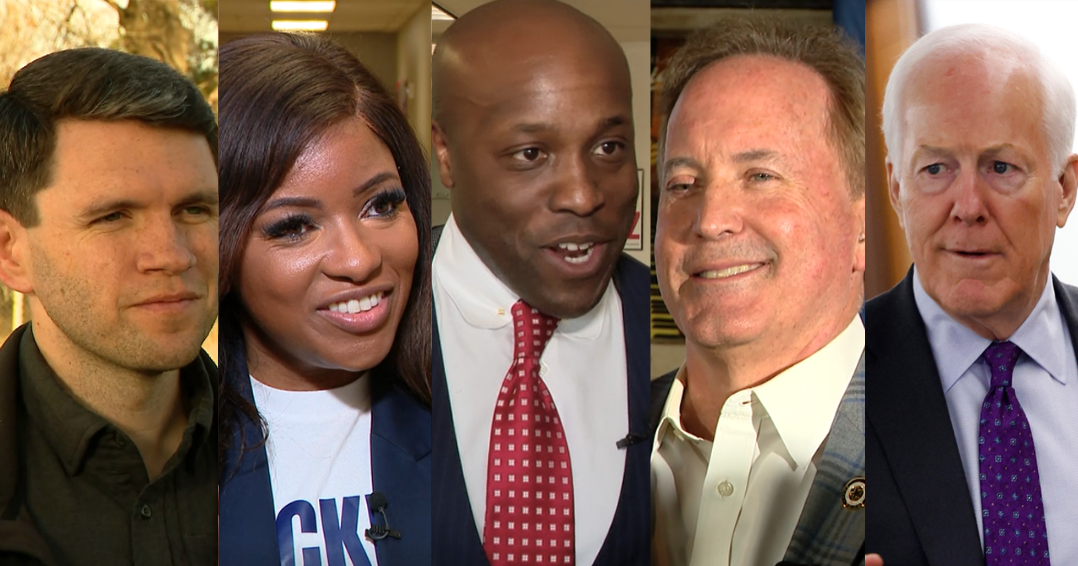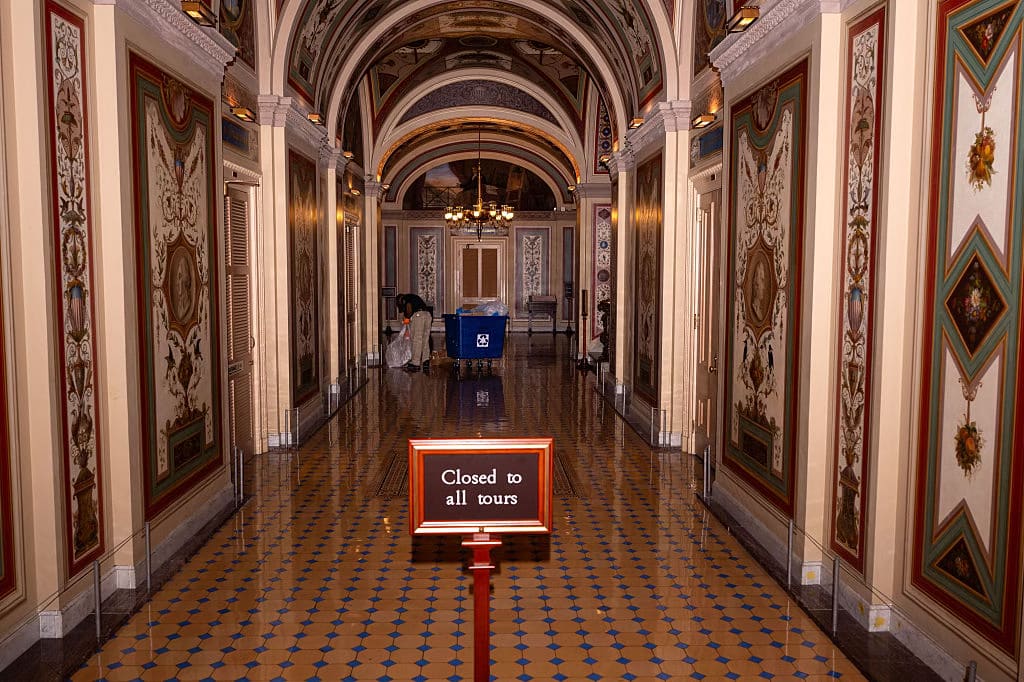Transcript: Sen. Pat Toomey on "Face the Nation," July 31, 2022
The following is a transcript of an interview with Republican Sen. Pat Toomey of Pennsylvania that aired Sunday, July 31, 2022, on "Face the Nation."
JOHN DICKERSON: We go now to Republican Senator Pat Toomey of Pennsylvania. He's in Zionsville this morning. Good morning, Senator.
SENATOR PAT TOOMEY: Good morning, John.
JOHN DICKERSON: Let's start with what the Democrats are calling the Inflation Reduction Act. You- you and other Republicans are not a fan. What is your principal critique?
SEN. TOOMEY: Well, it's gonna make inflation worse, actually. So, they've got a big corporate tax increase that's going to probably make this recession that we're in worse. All of this spending is unnecessary. It's going to exacerbate inflation. It is not going to reduce the deficit. And what did Senator Manchin get for us? Look, I'm a big fan of Joe Manchin. We are friends as he said, and I like Joe very much, but I think he got taken to the cleaners. He's agreeing to all this bad policy in return for which he's been promised that there's going to be some kind of pro-energy infrastructure bills sometime in the future. But first of all, I thought we did that in the infrastructure bill. Secondly, what is the text? But most importantly, why isn't that in this bill? And the answer is because Democrats don't support it. And so, this is going to do a lot of harm and there's not going to be a corresponding benefit.
JOHN DICKERSON: There's a lot- line in there. Let me focus on inflation, which everyone else is- is focused on. The Committee for a Responsible Budget which has been a fan of yours in the past and even in the present said- said this: 'Although reconciliation was designed for deficit reduction, this will be the first time in many years it was actually used for that purpose. With inflation at a 40-year high and debt approaching record levels. This would be a welcomed improvement to the status quo.' They and others who've looked at this say it will affect the- the, it will affect the deficit, lower the deficit in this legislation.
SEN. TOOMEY: Yeah, so it- here's why we won't, because they use the same gimmick that Senator Manchin said he was opposed to in the past. They claim the revenue over a 10-year window from their big tax increase, and their price controls. And then the expenditure that they acknowledge, they pretend is only going to be for three years. That's the Obamacare subsidies for wealthy Americans. That's an obvious political payoff. The last time they had to do this, they said it would only be for two years. It's about to expire. And they can't- they can't have it expire before an election. So, they're extending it, but only for three- they have no intention of ever ending the Obamacare subsidies over a 10-year window that wipes out the purported deficit reduction.
JOHN DICKERSON: But- so you're assuming bad faith in the future. But in this case, they extended it and they found pay-fors so that it would be deficit- so that it would decrease the deficit in this moment. So, it's plausible, given what's right in front of us today, that that could happen, again, in the future. I get what you're saying. Politically, it might not. But based on what's before us, which is an extension of the ACA and deficit reduction, it is possible to happen.
SEN. TOOMEY: They're- they're also counting huge amounts of additional tax revenue from giving more taxes, money to the IRS, which the CBO does not agree with. They're also not taking into account how much our economy will slow down from this big corporate tax increase that will mostly hurt manufacturing and domestic investment. These numbers are very, very dubious.
JOHN DICKERSON: Quickly on that question of production. I mentioned to Senator Manchin, the idea of supply goes down when you tax these companies. He said it's a matter of fairness, that these breaks that they have- represent from a previous tax cut, and that this is a matter of fairness in America.
SEN. TOOMEY: So, look at, what is the source of this tax increase? It's very simple. When we made our tax reform in 2017, what we did is we said if a business takes its profit, and invests it back in its business in the form of capital investment, new equipment, new plant, expanding their capacity. Then we said, you'd be able to deduct the cost of that in the year in which you incur the cost. The Democrats are saying we got to bring that to an end, despite the huge surge in capital expenditure that it brought us. And instead, they're gonna say, you only get to recognize a small fraction of that. We're gonna- they're gonna raise the cost of investing in a business.
JOHN DICKERSON: Let me ask you about the legislation this week, the PACT Act, which I know you want to talk about. It's providing health care to millions of veterans who were exposed to toxins. 123 Republicans in the House voted for this. 34 Senate Republicans have voted for it. Same bill. This week, the bill didn't change but the Republican votes did. Why?
SEN. TOOMEY: No, the Republican votes didn't change on the substance of the bill. Republicans have said we want an amendment to change a provision that has nothing to do with veterans' health care. The Republicans support this. The Democrats added a provision that has nothing to do with veterans' health care, and it's designed to change government accounting rules so that they can have a $400 billion spending spree–
JOHN DICKERSON: –But–
SEN. TOOMEY: –My amendment if we're- if I'm allowed to offer it, will take out that provision and will not reduce veteran spending by a dime.
JOHN DICKERSON: You mentioned this is- the Democrats inserted this, but they did get 134 Republican votes, and you have plenty of Republicans still voting for it. It seems like making this seem like a Democratic gimmick obscures what is your real point and your lifelong interest, which is this is about budgeting and whether the rules should be tight now, or whether as those who defend this bill, say, allow Congress to work in the future to be fiscally responsible. Isn't that a more accurate way to think about what you're offering?
SEN. TOOMEY: Well- well, let's be careful here because, JOHN, you mischaracterized this when you were speaking with Senator Manchin. We are fully accepting that the new expenditures under the PACT Act for veterans exposed to toxic chemicals will increase the deficit. And we accept that as a price we have to pay for people who serve the country. What I'm objecting to is a budgetary gimmick, a sleight of hand in accounting rules, that will allow totally unrelated spending of $400 billion over the next 10 years. That's what we think shouldn't be in this bill. Never should have been.
JOHN DICKERSON: Well, there's a debate about that. And as you know, some Republicans don't think it's a- it's a gimmick. They are still supporting this, and they think it can be fixed later. But let me ask you this. I read your amendment language, which your language doesn't just deal with this other thing. It actually caps annual expenditures for the toxic fund. And after 10 years, it goes away–
SEN. TOOMEY: –No, so that, John, that's totally incorrect. What it caps is how the government accounts for these transfers, but there is no cap on the amount of money that goes over, there is no cap on the total program. Look, if an honest Democrat evaluating this will tell you, if my amendment passes, not a dime changed in spending on veterans' programs. What changes is how the government accounts for it.
JOHN DICKERSON: I understand. But the accounting change, as you know, is a result- the reason they put it in that other bucket is that it doesn't subject it to the normal triage of budgeting. And the argument is that the values at stake here are more important than leaving it to the normal cut and thrust of budgeting. And so, I would ask you this–
SEN. TOOMEY: – Yeah, but that's –
JOHN DICKERSON: –but it's worth protecting is their argument. Let me- it's about priorities. As you know, budgets are a way people talk about priorities in a government. This week, many of the Republicans who switched their vote, voted for semiconductors. In 2017, Republicans lifted the caps on discretionary spending. We also have had a situation where lots of spending gets done in defense. You have been consistent with deficit reduction. But lots of other Republicans when they think it's in their interest, say let's lift the caps, let's not be so fastidious about the budget. So why is it important to be fastidious when it comes to veterans but less so when it comes to say, supporting chip manufacturers?
SEN. TOOMEY: Because John, once again, you're completely mischaracterizing this. We are all accepting that there are no changes to the projected spending path for all the veterans' programs, the existing veterans' programs and the new ones under the PACT Act. What we're objecting to is an accounting gimmick that will allow totally unrelated spending of $400 billion over the next 10 years. And most Republicans think we shouldn't loosen up the budget rules so that Democrats can go on a spending spree on things that have nothing to do with veterans' health care.
JOHN DICKERSON: Of course, Democrats have to be in charge in the future when that spending happens, and they may very well not be, but thank you, Senator, for being with us. We appreciate your time.
SEN. TOOMEY: I would impose- I would impose the restriction on Republicans as well.
JOHN DICKERSON: And you have the last word, Senator Toomey, thank you. We'll be right back with more Face the Nation stay with us.



